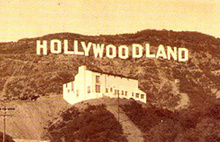TorrentFreak Email Update |
- Pirate Bay ‘Censorship’ Judge is Corrupt, Claims Pirate Party Founder
- MPAA: We’re No Pirates! You Are Thieves! Or?
- Verizon Refuses to Identify Alleged BitTorrent Pirates
| Pirate Bay ‘Censorship’ Judge is Corrupt, Claims Pirate Party Founder Posted: 12 May 2012 04:33 AM PDT The Court of The Hague in the Netherlands has been particularly busy this work with Pirate Bay-related cases. Following an earlier court ruling ordering two of the country’s largest ISPs to block subscriber access to The Pirate Bay, the Court ordered a further five ISPs to block TPB IP addresses and 20 domain names Thursday. The Court then went on to make a decision that was perhaps even more controversial than the first. The Dutch Pirate Party had been running a proxy service to facilitate access to the now-blocked Pirate Bay, but following pressure from anti-piracy group BREIN their activities were outlawed this week by the Court. The Pirate Party was ordered to shutdown its reverse proxy indefinitely and block Pirate Bay domains and IP-addresses from its generic proxy. However, in a decision that raised eyebrows, Judge Chris Hensen also banned the Party from using their own website to list the locations of other websites that allow the public to circumvent the blockade. This decision by Henson – which some observers believe amounts to a curtailment of freedom of speech – is not the first the Judge has made of this nature. In 2010, movie studio Eyeworks won its lawsuit against Dutch Usenet community FTD. In that verdict, Judge Hensen ruled that by allowing users to talk about a copyrighted movie's location on Usenet, FTD was effectively publishing the movie as if they had actually hosted it on their own servers. After the ruling it transpired that Judge Henson and Dirk Visser, the lawyer for the movie studio, had a closer relationship than had been expected. Visser, who also represented BREIN in their victory over Mininova, had been running courses for copyright specialists where Judge Hensen was once of the teachers. Of course, now Judge Hensen has delivered a similar ruling, his connections with Visser are being re-examined, not least by Pirate Party founder Rick Falkvinge who is absolutely scathing. “This is truly mind-boggling: not only was the plaintiff and judge personally and closely acquainted, the plaintiff in a controversial copyright monopoly case was running a commercial anti-piracy outfit together with the judge in the case,” Falkvinge writes. “Money was involved. Commercial interest was involved. The judge was, as it appears from this brochure for the quite expensive course, getting money. From the plaintiff. Shortly after the case. In a directly related matter. That makes the judge not only corrupt, but textbook corrupt,” Falkvinge adds. Claims of bias have hounded many big copyright-related cases in recent years, but for whatever reason have never gained any traction. In 2009 following the conviction of the founders of The Pirate Bay, it was revealed that two of the four judges set to hear their appeal were members of pro-copyright groups. The Supreme Court eventually decided that this would not affect their judgment. The year before it was revealed that police officer Jim Keyzer, the leader and key witness in the initial Pirate Bay investigation, had been recently employed by Warner Bros, one of the plaintiffs in the case. The controversy deepened when it was discovered that his employment with the studio was only temporary – he later returned to the police to head up an IT Crime unit. This so-called revolving door phenomenon has raised its head time and again in past couple of years. In March 2011, U.S. District Court Judge Beryl Howell – a former RIAA lobbyist and anti-piracy company boss – delivered a helpful ruling for potential copyright trolls. Then later that month it was revealed that a former music industry lobbyist had been appointed head of a unit dealing with copyright and enforcement issues at the European Commission. During early May commenting on the case against Megaupload, law Professor Eric Goldman bemoaned “the revolving door between government and the content industry.” Source: Pirate Bay ‘Censorship’ Judge is Corrupt, Claims Pirate Party Founder |
| MPAA: We’re No Pirates! You Are Thieves! Or? Posted: 11 May 2012 02:22 PM PDT
The former congressman pointed out that the film industry was able to thrive because of intellectual property protections. “The ability to give birth to an idea and convert it into economic success, whether it is the content of a film or the technology of the internet, depends on copyright and patent protection,” he said, referring to the history of US film. We thought that was ironic. Why? Because Hollywood was founded by a group of independent filmmakers who “fled” from Edison’s patents, among other things. The full story (see Copyhype) is richer, but it’s a well-known fact that those who now rule Hollywood refused to obey the patents. To emphasize the irony we described Hollywood’s founders as “thieves” and “pirates,” using quotation marks. Aside from these terms, the events described in our article are mostly undisputed. In no way did we say that this history justifies modern-day piracy, we simply pointed out that Dodd’s comments were unfortunate. The MPAA, however, doesn’t like to be called pirates. In a recent blog post they refer to the Copyhype post, claiming that what we and others such as Lawrence Lessig wrote is all lies. We are thieves. “If you ask the operators of The Pirate Bay and their apologists, they'll say Hollywood was built by a band of pirates, fleeing stringent East Coast patent protections to a free and open land to create at will. This theory conveniently parallels their own existence, as they seek to justify profiting from digital theft.” And these thieves are wrong, the MPAA claims. Hollywood’s founders were no pirates, but freedom fighters who rebelled against a “copyright” monopoly. “The patents at issue were held by the Motion Picture Patents Company, which, through restrictive tie-in agreements and licensing practices, severely impeded independent filmmakers from entering the market.” Hmmm, that sounds familiar. These independent filmmakers lost the first patent lawsuit, but eventually the court sided with them. “The status quo was challenged, and shortly afterwards, the Supreme Court determined that MPPC's licensing practices give it ‘a potential power for evil over’ movie producers which ‘would be gravely injurious to th[e] public interest.’ This 1917 ruling severely undermined MPPC's unfair business practices.” Fair enough, but the MPAA’s version of the truth doesn’t change anything about the fact that the founders of Hollywood were challenging existing patents. That they won in the end doesn’t mean that patents weren’t violated in the years before. So Dodd’s comment that “the ability to give birth to an idea and convert it into economic success, whether it is the content of a film or the technology of the internet, depends on copyright and patent protection,” is still rather unfortunate. Especially because Dodd specifically referenced a time where patents were infringed en masse. Also, the MPAA’s response in their recent blog post is in itself unfortunate. The lobby group says that Hollywood’s freedom fighters beat Edison because the court agreed that the MPPC had “a potential power for evil over" movie producers which "would be gravely injurious to th[e] public interest." Interesting, because today the MPAA is also quite powerful. They are the moral judge who decides what films the public is allowed to see. Not just for the major studios they represent, but also films of independent studios who are NOT an MPAA member company. Through its ratings system they can make or break films, a “potential power for evil” for sure. Just ask South Park creator Matt Stone or watch "This Film is Not Yet Rated" to get an idea of what's going on behind the scenes. Fin. Source: MPAA: We’re No Pirates! You Are Thieves! Or? |
| Verizon Refuses to Identify Alleged BitTorrent Pirates Posted: 11 May 2012 08:13 AM PDT
By filing a mass-BitTorrent lawsuit the company became one of the many copyright holders who together have sued a quarter million people in the country since early 2010. In recent months, Wiley has continued to file yet more suits against alleged BitTorrent pirates. Up until recently Wiley has enjoyed an easy ride in court. In several cases the New York federal court was quick to allow the book publisher to subpoena Internet providers for the personal details of account holders. With these details, Wiley can then approach the defendants and negotiate an out-of-court settlement. But not if it’s up to Verizon. While most Internet providers generally don’t object to a court-ordered subpoena, Verizon has refused to hand over the personal details of accused subscribers. One of the reasons given by Verizon is that Wiley is demanding the information for improper purposes, namely “to harass, cause unnecessary delay, or needlessly increase the cost of litigation.” In addition, the Internet provider doubts whether the subpoena will lead to the discovery of “relevant information.” In other words, Verizon seems to doubt that the person who pays for the account is also the infringer. This issue was also raised by New York Judge Gary Brown in another case last week, in which he concluded that an IP-address is not a person. In his order Brown argued that in mass-BitTorrent lawsuits it is simply unknown whether the person linked to the IP-address has anything to do with the alleged copyright infringements. Besides the two points above Verizon makes five more objections, including concerns over privacy. The company asserts that Wiley is seeking “information that is protected from disclosure by third parties’ rights of privacy and protections guaranteed by the First Amendment.” For its part, Wiley is not convinced by Verizon’s protest and has asked the court to compel Verizon to respond to the subpoenas. To discuss the issue, Judge Katherine Forrest has scheduled a telephone conference for early next week. Verizon’s objection is noteworthy because the action is not borne merely out of self-interest. Previously Time Warner also objected to mass-BitTorrent subpoenas where they had to produce the details of thousands of subscribers, arguing that this process was too time consuming. However, in this case the burden on the ISP is relatively low, as Wiley says it only asked for the details of 10 account holders for which Verizon would receive compensation of $45 each. Should Judge Katherine Forrest agree with Verizon’s objections it would be a serious blow to Wiley’s ongoing litigation campaign against BitTorrent users in the Southern District of New York. Source: Verizon Refuses to Identify Alleged BitTorrent Pirates |
| You are subscribed to email updates from TorrentFreak To stop receiving these emails, you may unsubscribe now. | Email delivery powered by Google |
| Google Inc., 20 West Kinzie, Chicago IL USA 60610 | |



 Two weeks ago we published an
Two weeks ago we published an  Last fall, John Wiley and Sons
Last fall, John Wiley and Sons
No comments:
Post a Comment